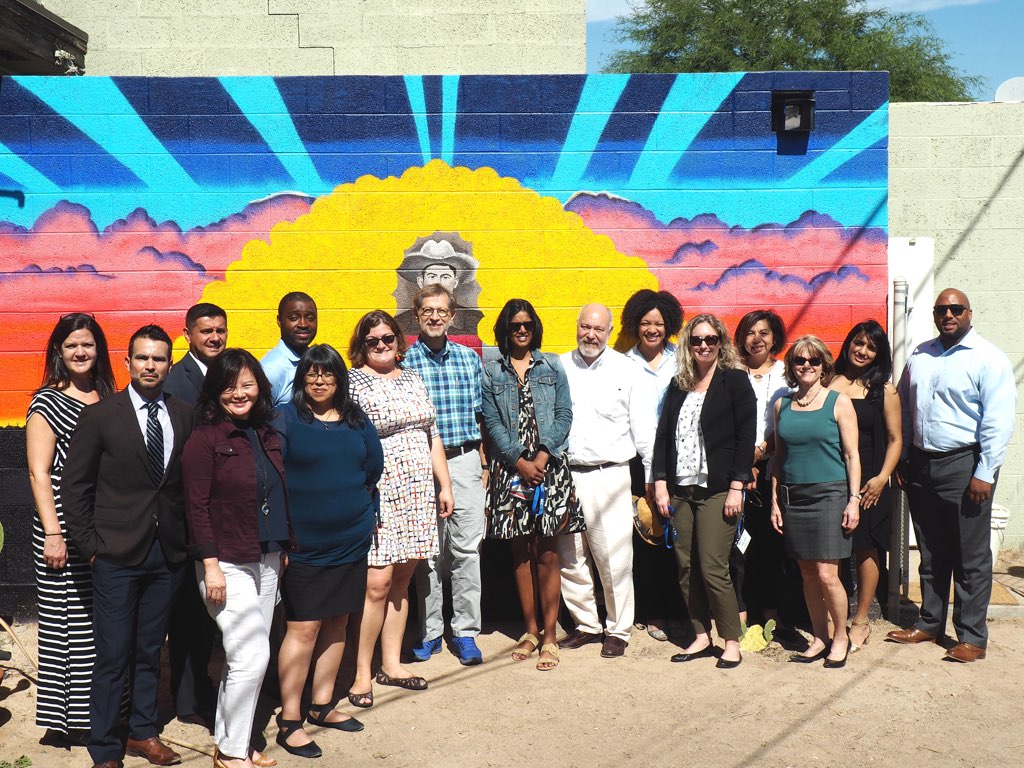ABOUT
Equitable Economic
Development Fellowship
Economic mobility, income inequality, and racial inequity are critical concerns for mayors across the country. This problem must be matched with strategies that address inequality not only as a deeply concerning social problem, but an economic one as well. The Equitable Economic Development (EED) Fellowship encourages cities to leverage their local economic development strategies to create more equitable access to opportunities within all of their communities.
Historically, traditional economic development policies and programs have not  always benefited all populations. For example, states and localities spend $50 billion to $80 billion on tax breaks and incentives each year in the name of economic development that, in many cases, shortchange people of color, immigrants, and low-income communities. For these reasons, some cities are looking for a new path forward by developing creative strategies to jumpstart their economies and intentionally connect underserved communities to economic opportunity.
always benefited all populations. For example, states and localities spend $50 billion to $80 billion on tax breaks and incentives each year in the name of economic development that, in many cases, shortchange people of color, immigrants, and low-income communities. For these reasons, some cities are looking for a new path forward by developing creative strategies to jumpstart their economies and intentionally connect underserved communities to economic opportunity.
Major economic development investments can bring significant public benefits, but also a great deal of political risk. Questions abound about the appropriate roles and benefits for private parties, the responsibilities of government, and the appropriate roles and benefits for different types of stakeholders.
The traditional set of local government economic development tools are at best blunt instruments for addressing inequalities across neighborhood, race, class, and gender lines. At worst, some city tools have been exacerbating the very gaps that city leaders hope to remedy. This program sets out to help cities that are trying to balance economic growth with transparency, inclusivity, and a proactive approach to overcoming the legacies of exclusion and disinvestment.
This fellowship aims to influence economic development policy and practice so that equity, transparency, sustainability, and community engagement become driving forces on any project. The Fellowship convenes economic development  leaders from six U.S. cities for an annual program of leadership development, technical assistance, peer learning, and team reflection during retreats.
leaders from six U.S. cities for an annual program of leadership development, technical assistance, peer learning, and team reflection during retreats.
Drawing on the networks of the National League of Cities (NLC), Urban Land Institute (ULI) and PolicyLink, the EED Fellowship provides access to subject matter experts to work with the city fellows over the course of the fellowship year.
The fellowship also aims to build the community of practice among the fellows and to encourage the sharing of best practices. The EED Fellowship also provides its fellows with access to other NLC, ULI and PolicyLink events, access to research capacity of all three organizations and organizes webinars featuring recognized speakers and organizations.
Previous topics include:
- training of workers with multiple barriers to employment, and tying incentives to hiring those workers
- connecting vacant privately-owned commercial spaces to minority entrepreneurs and supporting those start-ups with financing
- supporting worker cooperative incubator(s), focused on youth and minority-owned businesses
- access to financial and knowledge capital for businesses owned by people of color, starting in one underserved neighborhood

